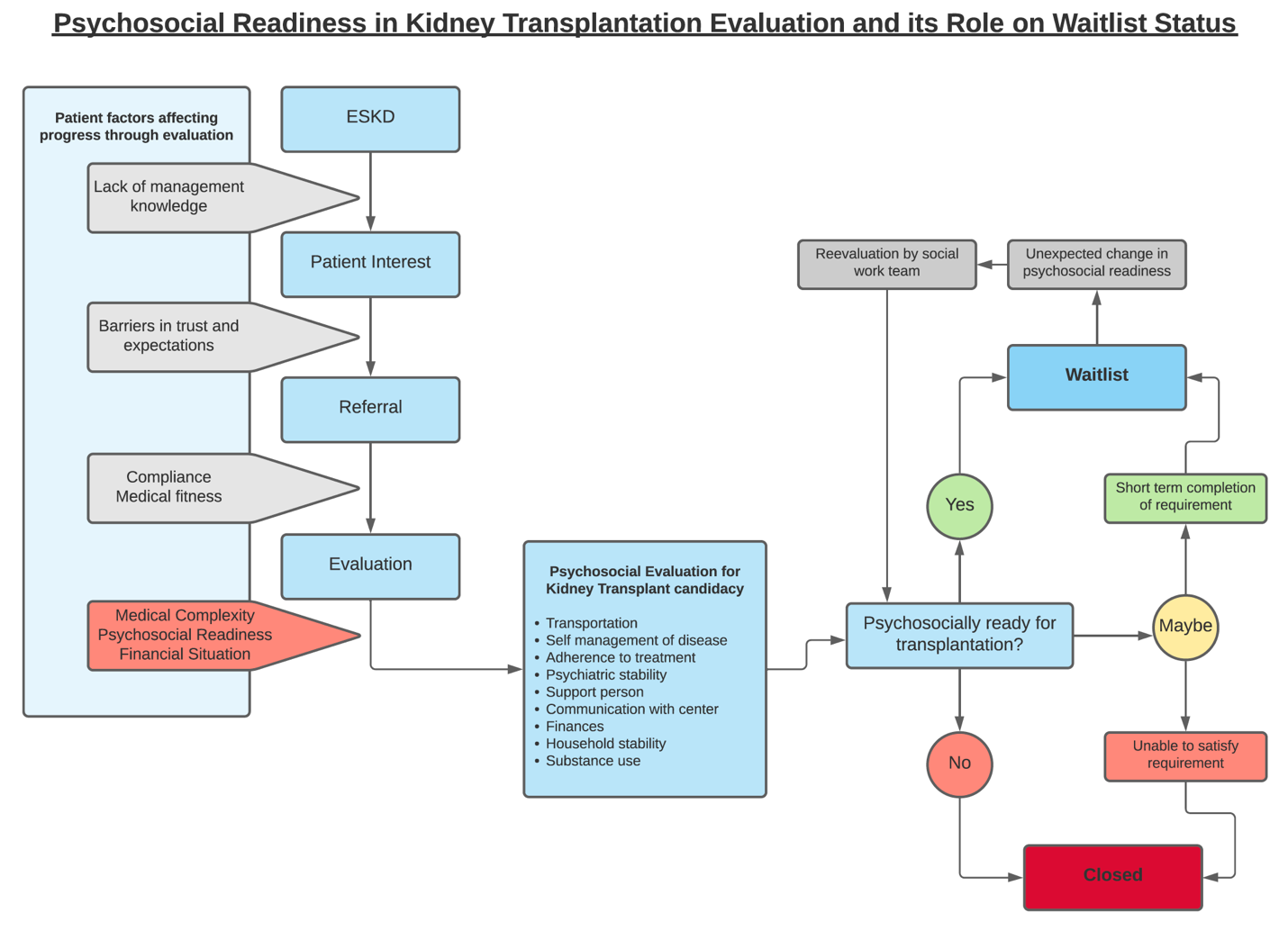Association of Psychosocial Clearance and Race in the Kidney Transplant Evaluation Process
V. S. Valbuena1, C. Satarino2, M. S. Anderson1, J. Obayemi1, T. J. Iwashyna3, R. Sung1
1Department of Surgery, University of Michigan, Ann Arbor, MI, 2Department of Social Work, University of Michigan, Ann Arbor, MI, 3Department of Internal Medicine, University of Michigan, Ann Arbor, MI
Meeting: 2022 American Transplant Congress
Abstract number: 516
Keywords: Kidney transplantation, Multivariate analysis, Psychosocial
Topic: Clinical Science » Kidney » 50 - Health Equity and Access
Session Information
Session Name: Health Equity and Access II
Session Type: Rapid Fire Oral Abstract
Date: Tuesday, June 7, 2022
Session Time: 5:30pm-7:00pm
 Presentation Time: 6:50pm-7:00pm
Presentation Time: 6:50pm-7:00pm
Location: Hynes Ballroom C
*Purpose: The psychosocial evaluation of transplant candidates is a comprehensive assessment of the (Fig 1). Psychosocial risk factors can be the only basis for not listing or de-listing a patient. We aimed to assess whether there is an association between race and evaluation closure for psychosocial risk factors.
*Methods: This retrospective cohort study included all kidney transplant evaluations performed at a single center from 2014-2018. Patient demographics and reason for evaluation closure were abstracted from the medical record. The primary outcome of interest was evaluation closure because of psychosocial clearance factors.
*Results: There were n= 3,593 kidney transplant evaluations performed during the study period, n= 2,393 for White patients and n=688 for Black patients. Of these, n=2,191 evaluations were closed. There were 38 discrete reasons for evaluation closure in the record with 6 corresponding to discrete psychosocial clearance concerns. The rate of closure for psychosocial clearance factors was 11.5% (95% CI, 10.0%,13.3%) for White patients and 19.3% (95% CI, 15.7%,23.4%) for Black patients. In an adjusted multilevel model accounting for patient characteristics, Black patients being evaluated for kidney transplantation had a statistically significant higher risk to have their evaluation closed for psychosocial clearance factors with an odds ratio (OR) of 1.64 (95%CI, 1.08, 2.51) compared to White patients (p<0.05).
*Conclusions: These results highlight a great disparity in the outcome of the psychosocial kidney transplant evaluation which likely reflects the higher structural disadvantage faced by Black patients with end-stage kidney disease.
To cite this abstract in AMA style:
Valbuena VS, Satarino C, Anderson MS, Obayemi J, Iwashyna TJ, Sung R. Association of Psychosocial Clearance and Race in the Kidney Transplant Evaluation Process [abstract]. Am J Transplant. 2022; 22 (suppl 3). https://atcmeetingabstracts.com/abstract/association-of-psychosocial-clearance-and-race-in-the-kidney-transplant-evaluation-process/. Accessed July 15, 2025.« Back to 2022 American Transplant Congress

